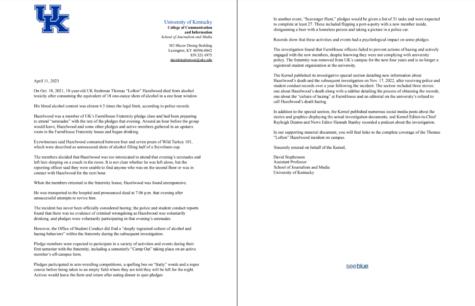What People with Bipolar I Disorder Want You to Know
April 5, 2022
(BPT) – Sponsored by Alkermes, Inc.
If someone you know is living with Bipolar I Disorder (BD-I), you probably have a lot of questions about what they’re experiencing and how you might be able to support them. A BD-I diagnosis can be overwhelming. Having information might be able to help you support the person with this diagnosis and possibly be a better ally.
BD-I is a brain disorder that is marked by changes in a person’s mood, from extreme highs (mania) to extreme lows (depression), and changes in energy and ability to function.[1] It affects approximately 1% of the adult population in the United States.[2]
A national survey has unveiled insights into the lives of individuals with BD-I.[3] The results of the survey, conducted by The Harris Poll on behalf of Alkermes, Inc. in collaboration with the Depression and Bipolar Support Alliance (DBSA), reveal that many people with BD-I face challenges ranging from feeling misunderstood to difficulties finding the right treatment option.
The mental health treatment journey also can be confusing for people who want to be an ally, but better understanding the experience of people living with BD-I might help. These points from the survey highlight some of these experiences:
1. Living with BD-I can be isolating
An overwhelming 81% of survey respondents reported feeling like no one understands what they’re going through, and 77% said that living with BD-I makes them feel isolated and alone. While many feel that BD-I has negatively impacted their life (87%), and that it takes up a lot of their mental and physical energy (91% and 83%, respectively), most also acknowledge that they have made a lot of progress in learning to manage their disorder (85%) and have accepted that it will always be part of their life (91%).
By offering comfort, support, and a safe space to be open about their diagnosis and experience, you may be able to help someone with BD-I feel less alone.
2. Finding the right medication can be a long and difficult process
In the study, 70% of respondents said that finding a BD-I medication that works well for them has proven difficult and 78% agreed that it took them a very long time to feel like their BD-I medication regimen worked. If someone you know is living with BD-I, try to be open and empathetic during their treatment journey. Asking them how their treatment may be working and encouraging them to communicate honestly with their healthcare provider(s) about their experience may also be important in helping them advocate for themselves.
3. Side effects of medication can impact quality of life
Survey results showed that 52% of survey respondents experienced weight gain and anxiety, and 49% of respondents experienced drowsiness as a side effect of their medication. Ninety-five percent of respondents say these side effects have negatively impacted some aspect of their life; more specifically, 41% of respondents said their motivation and energy to do things they enjoy and 34% of respondents said that their sleep quality were affected.
For people living with a mental health condition, allyship is important. In this survey, 38% of respondents shared that they feel the need to hide their BD-I diagnosis from their colleagues or classmates. If a person you know with BD-I shared their mental health experience with you, it’s a great opportunity for you to be a source of support and connection for them. As the data reveal, the realities of living with BD-I can be challenging, but allies can be a critical support system. For more information on where to find supportive resources for allyship, visit the Depression and Bipolar Support Alliance (DBSA) website. On their website, you’ll find:
- Support groups — DBSA offers online and local support groups for peers, friends, and family to help you access support virtually or near you.
- Information on treatment — If your friend or family member is facing treatment challenges, the person needs your support and patience more than ever. Education can help you both find options that are available and decide whether a second opinion is needed.
- Becoming a peer support specialist — To offer help beyond the people in your life; DBSA’s peer support network is an opportunity to become trained and certified to help others as they move forward in their mental health recovery.
This is intended as informational only and not a substitute for professional medical advice, diagnosis or treatment. Always seek the advice of your physician or other qualified health provider with any questions you may have regarding a medical and/or mental health condition.
[1] American Psychiatric Association. What Is Bipolar Disorder? Retrieved March 23, 2022, from https://www.psychiatry.org/patients-families/bipolar-disorders/what-are-bipolar-disorders
[2] Merikangas et al. Lifetime and 12-Month Prevalence of Bipolar Spectrum Disorder in the National Comorbidity Survey Replication. Arch Gen Psychiatry, 2007 May; 64(5): 543-552. http://www.ncbi.nlm.nih.gov/pmc/articles/PMC1931566/
[3] The Harris Poll conducted these online surveys on behalf of Alkermes and in consultation with DBSA among 305 people living with BD-I in the U.S. In order to qualify for participation, subjects had to be aged 18-45+, must have taken BD-I medication at the time of the survey or in the year prior to the survey, and could not have been managing/receiving treatment for schizophrenia at the time of the survey. Data were collected between August 3 and August 26, 2021, and raw data were not weighted and are therefore only representative of those who completed the survey. The results of this survey do not necessarily represent the experiences of the broader population of people living with BD-I.
For complete survey methodology, including weighting variables and subgroup sample sizes, or for any additional questions regarding the survey, please send requests to [email protected].
ALKERMES® is a registered trademark of Alkermes, Inc. ©2022 Alkermes, Inc. All rights reserved.
UNB-003368

















































































































































